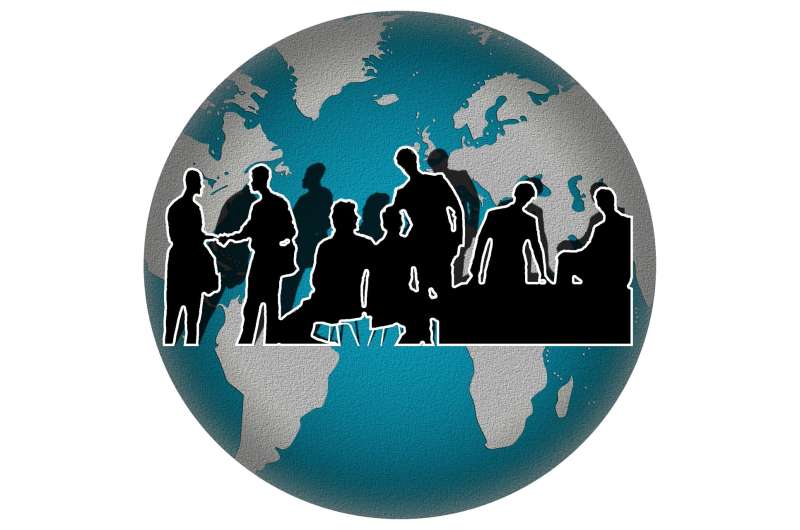This article has been reviewed according to Science X's editorial process and policies. Editors have highlighted the following attributes while ensuring the content's credibility:
fact-checked
trusted source
written by researcher(s)
proofread
Historic amendments to the WHO's International Health Regulations create a path toward an equitable pandemic treaty

On June 1, in the nail-biting final hours of the annual World Health Assembly meeting in Geneva, states agreed to a robust package of amendments to the World Health Organization's 2005 International Health Regulations.
For more than a century, nations have sought to develop international rules to face communicable disease threats while protecting national interests. Building on that history, the regulations are the world's only existing international legal agreement focused exclusively on preventing and addressing infectious disease outbreaks across borders.
The last time the regulations saw a major overhaul, the international community had narrowly emerged from the grips of the 2003 SARS outbreak. Old rules had nothing on new germs. Realizing their shared vulnerability to new diseases, countries mobilized to give the regulations a facelift.
Like SARS, the COVID-19 pandemic has exposed gaps in this global health legal framework. Unlike SARS, however, almost every corner of the globe has felt the drawn-out human, social, economic and political toll of COVID-19. The pandemic revealed gaps of a deeper and more systemic nature. It called into question the world's ability to face pandemic threats with equity, solidarity and trust.
To some extent, the forthcoming revisions to the regulations try to bridge those gaps. When these changes take effect, the world may be better placed than ever before to collectively avert the next pandemic.
Equity and solidarity
To begin with, the new regulations enhance transparency and the timeliness of information about important public health events. They also provide for a new "pandemic emergency" alert, aiming to prepare countries for an imminent threat before it's too late to contain. Crucially, they also oblige countries to collaborate so that medicines, diagnostics and vaccines have a better chance of reaching people who need them the most, wherever they may be.
These are laudable changes. However, the amendments' most profound impact may well be symbolic. For the first time ever, more than 190 countries have agreed to bridge north-south divides on key issues, moving beyond a narrow "technical" interpretation of the regulations. Under the new rules, the implementation of the regulations must be guided by the principles of equity and solidarity, alongside fundamental human rights.
As a former member of the WHO expert committee that first examined proposed amendments to the regulations, I am particularly heartened to see this part of the committee's recommendations taken up by countries in their negotiations.
Affirming that equity and solidarity are fundamental to the application of the regulations won't undo deep-rooted global health injustices. Nor can it gloss over egregious failures in solidarity, such as the squandered opportunity to temporarily waive intellectual property barriers that prevented the distribution of lifesaving vaccines to areas where they were needed most.
But it will help ensure that all future actions taken pursuant to the regulations are guided by these ideals and enable civil society to hold governments accountable to them. The gross injustices of vaccine hoarding and price gouging that prolonged the COVID-19 pandemic and disproportionately affected the Global South cannot be relived again.
Challenges and implementation
To be sure, the hard work of making the new regulations a reality lies ahead. Implementation is the perennial challenge of international law. There is no guarantee that what countries agree to today will be what countries do tomorrow. The regulations also grant governments up to a year to decide if they want to be bound by the new rules.
But for now, in a world rife with geopolitical tension, mis- and disinformation, and populism, the regulations are a rare win for multilateralism and global health diplomacy. All involved in reaching consensus in negotiations should be commended.
And they should channel the celebratory mood of this feat for the crucial work ahead: developing a new legal instrument dedicated to pandemics under the WHO. From the transfer of technology and know-how to the licensing of pandemic-related products, the pandemic treaty offers countries the opportunity to move beyond rhetoric and operationalize equity and solidarity through concrete action and evidence-based laws.
Canada's role
That's where Canada comes in. Wealthy countries like Canada often disagree with developing countries on how to achieve equity in pandemic preparedness and response. But success in amending the regulations should galvanize countries to work even harder to reach consensus on the pandemic treaty.
As a "middle power" in global health diplomacy, Canada has a particularly important role to play in fostering this consensus. Regardless of its past negotiating positions, Canada should view the regulations as a reset button, and a license to rethink how it can constructively advance the last leg of negotiations.
The recent amendments to the International Health Regulations are a testament to what can be achieved through constructive discourse and diplomacy—even in a world as perilous as ours. This momentum must be harnessed to forge a global health law architecture centered on fairness and equity, leaving no one behind when the next crisis strikes. The stakes are too high to settle for anything less.
This article is republished from The Conversation under a Creative Commons license. Read the original article.![]()



















